第82章
The next day, the 30th of October, all was ready for the proposed exploring expedition, which recent events had rendered so necessary.In fact, things had so come about that the settlers in Lincoln Island no longer needed help for themselves, but were even able to carry it to others.
It was therefore agreed that they should ascend the Mercy as far as the river was navigable.A great part of the distance would thus be traversed without fatigue, and the explorers could transport their provisions and arms to an advanced point in the west of the island.
It was necessary to think not only of the things which they should take with them, but also of those which they might have by chance to bring back to Granite House.If there had been a wreck on the coast, as was supposed, there would be many things cast up, which would be lawfully their prizes.
In the event of this, the cart would have been of more use than the light canoe, but it was heavy and clumsy to drag, and therefore more difficult to use; this led Pencroft to express his regret that the chest had not contained, besides "his halfpound of tobacco," a pair of strong New Jersey horses, which would have been very useful to the colony!
The provisions, which Neb had already packed up, consisted of a store of meat and of several gallons of beer, that is to say enough to sustain them for three days, the time which Harding assigned for the expedition.They hoped besides to supply themselves on the road, and Neb took care not to forget the portable stove.
The only tools the settlers took were the two woodmen's axes, which they could use to cut a path through the thick forests, as also the instruments, the telescope and pocket-compass.
For weapons they selected the two flint-lock guns, which were likely to be more useful to them than the percussion fowling-pieces, the first only requiring flints which could be easily replaced, and the latter needing fulminating caps, a frequent use of which would soon exhaust their limited stock.However, they took also one of the carbines and some cartridges.As to the powder, of which there was about fifty pounds In the barrel, a small supply of it had to be taken, but the engineer hoped to manufacture an explosive substance which would allow them to husband it.To the firearms were added the five cutlasses well sheathed in leather, and, thus supplied, the settlers could venture into the vast forest with some chance of success.
It is useless to add that Pencroft, Herbert, and Neb, thus armed, were at the summit of their happiness, although Cyrus Harding made them promise not to fire a shot unless it was necessary.
At six in the morning the canoe put off from the shore; all had embarked, including Top, and they proceeded to the mouth of the Mercy.
The tide had begun to come up half an hour before.For several hours, therefore, there would be a current, which it was well to profit by, for later the ebb would make it difficult to ascend the river.The tide was already strong, for in three days the moon would be full, and it was enough to keep the boat in the center of the current, where it floated swiftly along between the high banks without its being necessary to increase its speed by the aid of the oars.In a few minutes the explorers arrived at the angle formed by the Mercy and exactly at the place where, seven months before, Pencroft had made his first raft of wood.
After this sudden angle the river widened and flowed under the shade of great evergreen firs.
The aspect of the banks was magnificent.Cyrus Harding and his companions could not but admire the lovely effects so easily produced by nature with water and trees.As they advanced the forest element diminished.On the right bank of the river grew magnificent specimens of the ulmaceae tribe, the precious elm, so valuable to builders, and which withstands well the action of water.Then there were numerous groups belonging to the same family, among others one in particular, the fruit of which produces a very useful oil.Further on, Herbert remarked the lardizabala, a twining shrub which, when bruised in water, furnishes excellent cordage; and two or three ebony trees of a beautiful black, crossed with capricious veins.
From time to time, in certain places where the landing was easy, the canoe was stopped, when Gideon Spilett, Herbert, and Pencroft, their guns in their hands, and preceded by Top, jumped on shore.Without expecting game, some useful plant might be met with, and the young naturalist was delighted with discovering a sort of wild spinach, belonging to the order of chenopodiaceae, and numerous specimens of cruciferae, belonging to the cabbage tribe, which it would certainly be possible to cultivate by transplanting.There were cresses, horseradish, turnips, and lastly, little branching hairy stalks, scarcely more than three feet high, which produced brownish grains.
Do you know what this plant is?" asked Herbert of the sailor.
"Tobacco!" cried Pencroft, who evidently had never seen his favorite plant except in the bowl of his pipe.
"No, Pencroft," replied Herbert; "this is not tobacco, it is mustard.""Mustard be hanged!" returned the sailor; "but if by chance you happen to come across a tobacco-plant, my boy, pray don't scorn that!""We shall find it some day!" said Gideon Spilett.
"Well!" exclaimed Pencroft, "when that day comes, I do not know what more will be wanting in our island!"These different plants, which had been carefully rooted up, were carried to the canoe, where Cyrus Harding had remained buried in thought.
The reporter, Herbert, and Pencroft in this manner frequently disembarked, sometimes on the right bank, sometimes on the left bank of the Mercy.